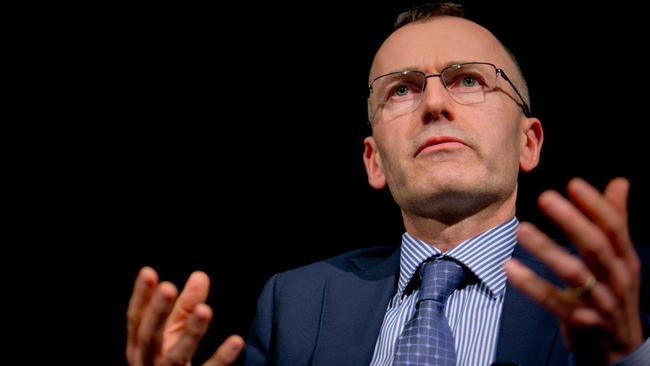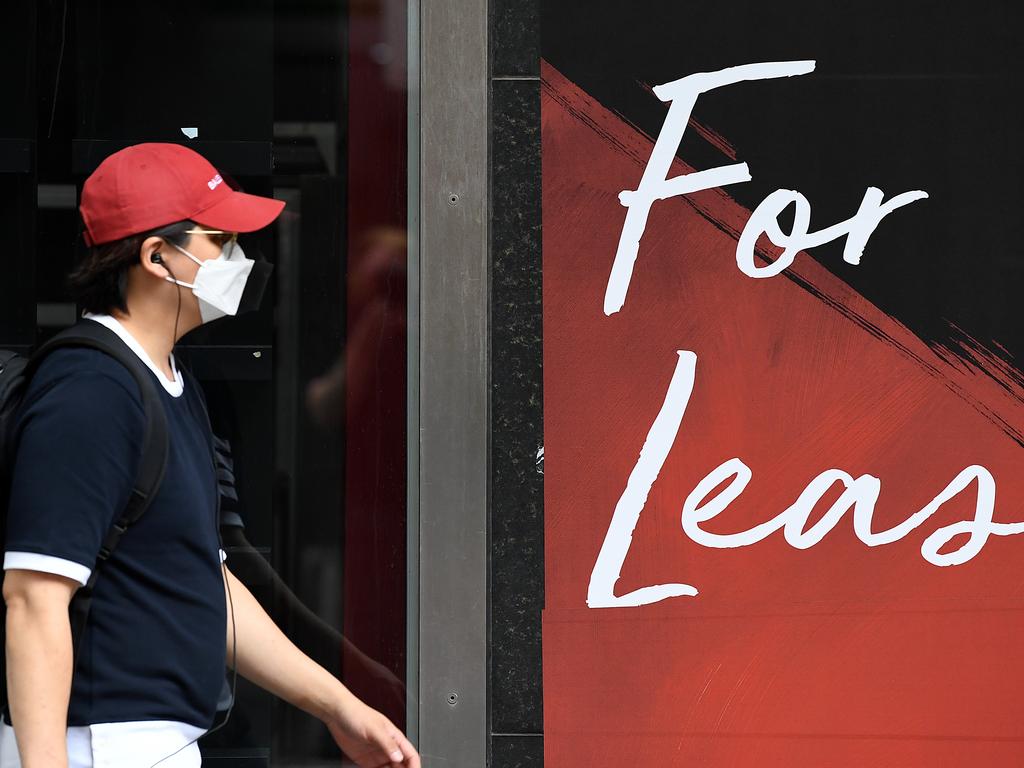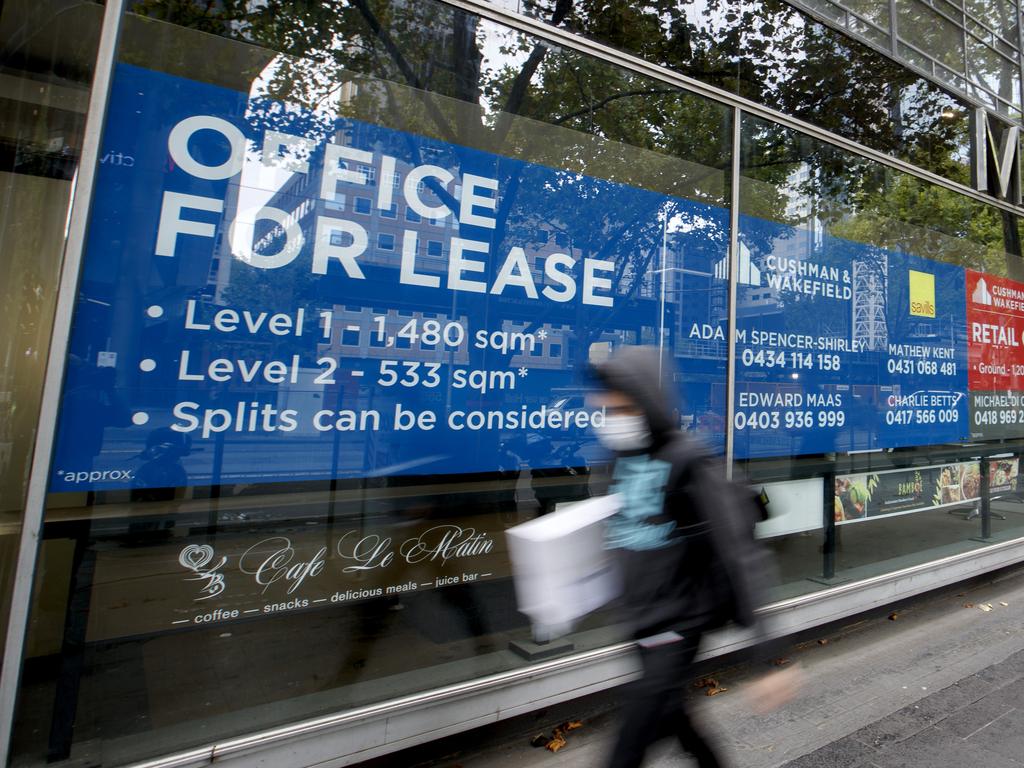RBA keeping close eye on health of SMEs as pandemic support expires
The Reserve Bank has sounded a warning on the small business impact of the removal of pandemic support measures like JobKeeper.

The Reserve Bank has sounded a warning on the small business impact of the removal of pandemic support measures like the government’s JobKeeper wages subsidy that expires this month.
Australia’s central bank is paying “close attention” to the availability of finance for small businesses and their prospects after a “particularly tough year” due to COVID and the associated restrictions on movement caused the biggest economic downturn since the 1930s.
A wide range of monetary, fiscal and private sector support measures in the past year have lessened their need for additional funds, but smaller businesses overall had “suffered significantly” from economic hardship due to the pandemic, said RBA Assistant Governor Chris Kent.
While noting that small business lending overall was little changed in the past year — partly reflecting the reluctance of some businesses to take on more debt in a “weaker and more uncertain economic environment”, as well as the effectiveness of policy measures to support their cash flow, Mr Kent warned that business failures were expected to rise as some of the support measures were phased out.
“Given the importance of small businesses to the economy, we will continue to pay close attention to their access to finance and their prospects more broadly,” he said in an address to the Australian Finance Industry Association on Wednesday.
Mr Kent said small businesses played a “critical role in the Australian economy”. They employed about five million Australians, accounted for about a third of private non-financial output and were a key source of innovation and competition.
It came as Australian Retailers Association chief executive Paul Zahra said he feared that April would see the start of a wave of administrations as CBD retailers found they could no longer afford to keep their doors open.
Mr Zahra said some were predicting it could take as long as a decade before the retail trade in the Melbourne CBD returned to pre-COVID levels. Estimates were that it would take Sydney five years to get back to pre-COVID levels with Brisbane looking at three years.
Mr Kent said that while business confidence had “improved markedly of late”, smaller businesses in particular remained reluctant to take out new loans, partly reflecting an economic outlook that “is still very uncertain”.
Moreover, access to finance for smaller businesses had been a “longstanding challenge”.
In response to the pandemic, the RBA introduced a package of monetary policy measures last year — including cutting the cash rate to 0.1 per cent, starting a government bond buying program and a three-year bond yield target of 0.1 per cent, as well as low-cost funding for banks — to reduce the cost and increase the supply of credit.
It has said repeatedly that it doesn’t expect its preconditions for an increase in interest rates to be met until “2024 at the earliest”.
At the same time the government started JobKeeper, boosting cash flow for employers and enhanced tax incentives for investment to reduce costs, increase household disposable income and support aggregate demand.
It also introduced a $15bn Structured Support Fund to help smaller lenders access funding and a $40bn small business loan guarantee scheme — subsequently enhanced for small businesses that have been receiving JobKeeper — to enable participating lenders to issue cheaper loans to small businesses.
Support was also provided through the private sector where some landlords offered more flexible rent arrangements and banks offering to defer loan payments.
Along with the country’s successes on the health front, these policies lessened the impact of the pandemic and underpinned an economic recovery that was “well underway”, Mr Kent said.
A smaller share of businesses indicated in February that economic uncertainty was weighing on their investment plans than was the case in August, and increased job openings and employment growth since late last year was proving “particularly pronounced” in industries that were most affected by COVID-19 restrictions, he noted.
While over 200,000 SME borrowers arranged to defer their loan payments last year, most had now resumed payments.
The share of SME loans in deferral has fallen to just 1 per cent from a peak of 13 per cent in June.
“Consistent with these outcomes, modelling by large banks suggests that the risk of default for small businesses relative to large businesses did not change much in 2020,” Mr Kent said.
In fact, SME lending overall has been little changed over the past year, in part reflecting the effectiveness of various support measures.
“Nevertheless, business failures are expected to rise as some of the pandemic support measures are phased out,” Mr Kent cautioned. “Given the importance of small businesses to the economy, we will continue to pay close attention to their access to finance and their prospects more broadly.”
It comes amid some concern about a potential rise in unemployment after the JobKeeper wages subsidy ends this month.
In the minutes of its March board meeting this week, the RBA said: “In the near term there was some uncertainty relating to the effect that the end of the JobKeeper program would have on labour market conditions.”
However RBA board members said the end of the JobKeeper program “was seen as unlikely to result in a sustained increase in the unemployment rate”.








To join the conversation, please log in. Don't have an account? Register
Join the conversation, you are commenting as Logout